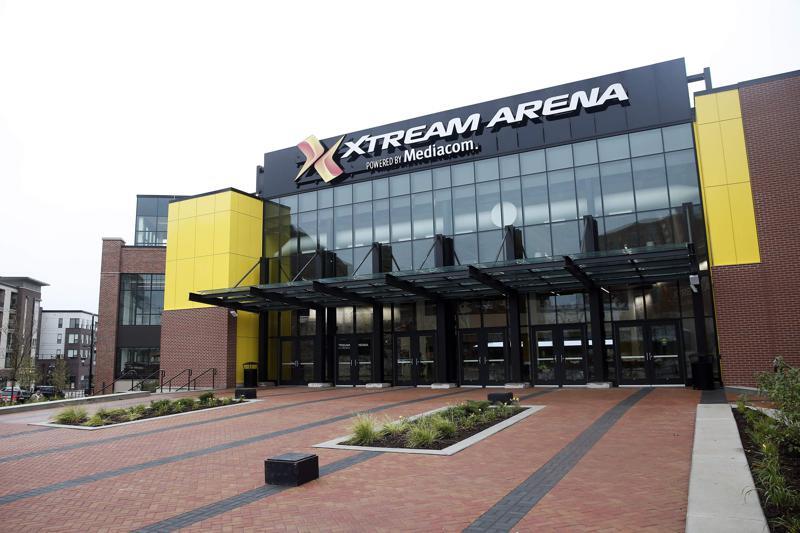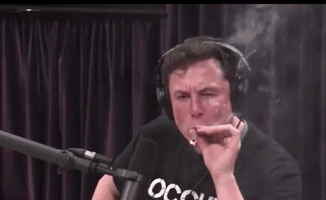Iowa cities could charge ticket holders, hotel guests and others to help pay for infrastructure improvements to facilitate the development of sports arenas, concert venues and other attractions under a bill advanced by House lawmakers.
House File 412 would allow cities to impose up to a 3 percent surcharge on retail, food, alcohol, ticket and hotel room sales within a designated entertainment district.
The proposed entertainment area could consist only of properties zoned for commercial uses or properties within a designated historic district. At least 75 percent of the properties must be cultural, entertainment, food, liquor or lodging establishments expected to draw a combined annual attendance of more than 250,000 people.
Advertisement
Rep. Brian Lohse, a Republican from Bondurant, put forward the bill.
Lohse previously served on the Bondurant City Council and noted the difficulty city officials had trying to pay for infrastructure improvements needed to facilitate the public-private development of a prospective soccer stadium and arena.
Lohse said a surcharge would help cities subsidize part of the cost to lure economic development projects, bolster Iowa tourism and shift the extra tax burden away from property tax owners — who may or may not frequent the entertainment district — to users, including visitors.
Lohse pointed to the TBK Bank Sports Complex in Bettendorf as a good example of an area where the bill could apply.
Daniel Stalder, representing the Iowa League of Cities, also pointed to the Council Bluffs area.
“I think something like this could help the Council Bluffs area stay competitive,” after Nebraska authorized casino gaming, Stalder said. “I think near the border where we see people potentially coming into Iowa is exactly where this sort of thing was designed and built for.”
Newsletter Signup
 Legislative & Politics News Delivered to your inbox each weekday
Legislative & Politics News Delivered to your inbox each weekday
Doug Struyk, a lobbyist representing the cities of Des Moines and Waukee, said the bill provides cities new opportunities to develop entertainment options that draw more people to their communities, by investing in infrastructure without putting it on the back of property taxpayers.
Stalder, too, argued the bill provides “an abundance for checks and process to prevent something from going in place that’s not appreciated locally,” as well as public transparency.
At least 25 percent of all property owners within the proposed entertainment area would be needed for a city to initiate proceedings to adopt an ordinance to establish a surcharge, which would require a public hearing and providing at least 15 days notice to each owner of property within the proposed entertainment area.
A three-fourths majority of city council members would be required to adopt a surcharge, or an affirmative vote of two members for cities with three-member councils. However, should at least 25 percent of property owners within the proposed area protest the proposed surcharge, adoption would require a unanimous vote of city council.
The proposal would be forced to be withdrawn if 40 percent or more of all property owners in the proposed entertainment district file a petition in opposition.
Victoria Sinclair, with Iowans for Tax Relief, contends the bill “plain and simply” amounts to a tax increase.
Jessica Dunker, president and CEO of the Iowa Restaurant Association, raised concerns about one company owning a majority of property overruling and drowning out the voices and wishes of individual operators running the hospitality businesses within a district.
Eric Goranson, a lobbyist representing the Iowa Hotel & Lodging Association, echoed those concerns.
Lohse said the bill will likely be amended in committee to raise the threshold to 60 percent of landowners and operators that would have to approve, as well as clarifying money collected through the surcharge would have to be reinvested in the entertainment district.
A three-member subcommittee advanced the bill to the full House Appropriations Committee.
Iowa’s unemployment rate dropped below 3 percent for the first time since August last month, according to Iowa Workforce Development.
The rate fell to 2.9 percent in February, down from 3 percent in January. In the same span, the national unemployment rate increased from 3.4 percent to 3.6 percent.
Iowa Workforce Development director Beth Townsend said in a news release the state has weathered pressures of higher interest rates and inflation to maintain low unemployment.
“Our economy has increased the number of jobs by more than 8,000 since the beginning of the pandemic,” she said. “All of this demonstrates the resiliency of the Iowa economy despite major national headwinds.”
The labor force — those either employed or looking for work — increased by 100 people, while the number of employed Iowans increased by 1,300.

 www.thegazette.com
www.thegazette.com
House File 412 would allow cities to impose up to a 3 percent surcharge on retail, food, alcohol, ticket and hotel room sales within a designated entertainment district.
The proposed entertainment area could consist only of properties zoned for commercial uses or properties within a designated historic district. At least 75 percent of the properties must be cultural, entertainment, food, liquor or lodging establishments expected to draw a combined annual attendance of more than 250,000 people.
Advertisement
Rep. Brian Lohse, a Republican from Bondurant, put forward the bill.
Lohse previously served on the Bondurant City Council and noted the difficulty city officials had trying to pay for infrastructure improvements needed to facilitate the public-private development of a prospective soccer stadium and arena.
Lohse said a surcharge would help cities subsidize part of the cost to lure economic development projects, bolster Iowa tourism and shift the extra tax burden away from property tax owners — who may or may not frequent the entertainment district — to users, including visitors.
Lohse pointed to the TBK Bank Sports Complex in Bettendorf as a good example of an area where the bill could apply.
Daniel Stalder, representing the Iowa League of Cities, also pointed to the Council Bluffs area.
“I think something like this could help the Council Bluffs area stay competitive,” after Nebraska authorized casino gaming, Stalder said. “I think near the border where we see people potentially coming into Iowa is exactly where this sort of thing was designed and built for.”
On Iowa Politics
Newsletter Signup

Doug Struyk, a lobbyist representing the cities of Des Moines and Waukee, said the bill provides cities new opportunities to develop entertainment options that draw more people to their communities, by investing in infrastructure without putting it on the back of property taxpayers.
Stalder, too, argued the bill provides “an abundance for checks and process to prevent something from going in place that’s not appreciated locally,” as well as public transparency.
At least 25 percent of all property owners within the proposed entertainment area would be needed for a city to initiate proceedings to adopt an ordinance to establish a surcharge, which would require a public hearing and providing at least 15 days notice to each owner of property within the proposed entertainment area.
A three-fourths majority of city council members would be required to adopt a surcharge, or an affirmative vote of two members for cities with three-member councils. However, should at least 25 percent of property owners within the proposed area protest the proposed surcharge, adoption would require a unanimous vote of city council.
The proposal would be forced to be withdrawn if 40 percent or more of all property owners in the proposed entertainment district file a petition in opposition.
Victoria Sinclair, with Iowans for Tax Relief, contends the bill “plain and simply” amounts to a tax increase.
Jessica Dunker, president and CEO of the Iowa Restaurant Association, raised concerns about one company owning a majority of property overruling and drowning out the voices and wishes of individual operators running the hospitality businesses within a district.
Eric Goranson, a lobbyist representing the Iowa Hotel & Lodging Association, echoed those concerns.
Lohse said the bill will likely be amended in committee to raise the threshold to 60 percent of landowners and operators that would have to approve, as well as clarifying money collected through the surcharge would have to be reinvested in the entertainment district.
A three-member subcommittee advanced the bill to the full House Appropriations Committee.
Iowa unemployment rate dips
Iowa’s unemployment rate dropped below 3 percent for the first time since August last month, according to Iowa Workforce Development.
The rate fell to 2.9 percent in February, down from 3 percent in January. In the same span, the national unemployment rate increased from 3.4 percent to 3.6 percent.
Iowa Workforce Development director Beth Townsend said in a news release the state has weathered pressures of higher interest rates and inflation to maintain low unemployment.
“Our economy has increased the number of jobs by more than 8,000 since the beginning of the pandemic,” she said. “All of this demonstrates the resiliency of the Iowa economy despite major national headwinds.”
The labor force — those either employed or looking for work — increased by 100 people, while the number of employed Iowans increased by 1,300.
Capitol Notebook: Iowa lawmakers advance ticket surcharge proposal
The bill would allow Iowa cities to impose up to a 3 percent surcharge on retail, food, alcohol, ticket and hotel room sales to fund entertainment districts.


